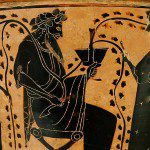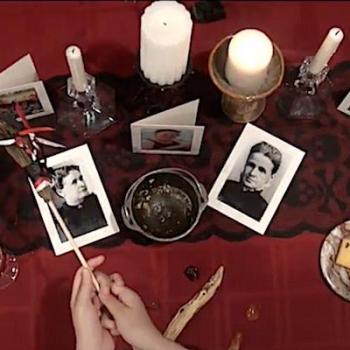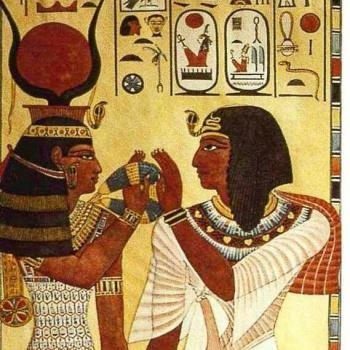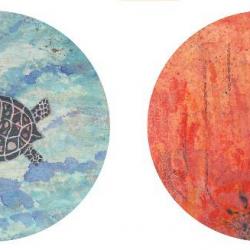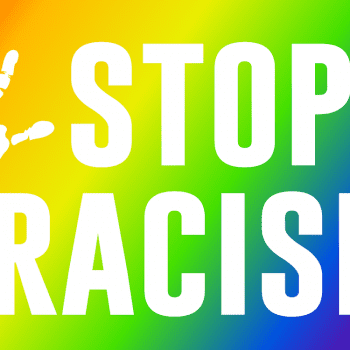“In the middle of my life’s way, I found myself in a dark wood…” – Dante Alighieri, The Divine Comedy
Walking through the Dark Wood
Especially when one is open, when one adheres to a tenet of “A responsible search for truth and meaning” and “Direct experience of that transcending mystery and wonder, affirmed in all cultures, which moves us to a renewal of the spirit and an openness to the forces which create and uphold life,” (the fourth Principle and first Source in Unitarian Universalism)… Especially when one takes these seriously…Perhaps, especially when one is a Pagan-UU or UU-Pagan…
Under these conditions, one may embark—seemingly fearlessly—on a spiritual journey. You find yourself, as Dante did, on a path. You are seeking the Love that will not let you go; the Divine Who Is/Are Male, Female, Both, and Neither; the Right Place; the Time out of Time; or the acquaintance of A God Who Could be Real (see Nancy Ellen Abrams’ book of that name). Under these conditions, you may find things that are intensely private, intimate, and that take a while to be shared. Are we in our congregations willing to hear what one another has to share about our spiritual journey? Really hear?
I have questions for my UU siblings, for our religious leaders, for myself:
Do we in fact support the combination of the First Source and the Fourth Principle? What religious and spiritual expressions are culturally supported in our congregations and other gatherings?

What do we do when someone’s theology is different from the culture of our congregations?
Admitting the Heart’s Truth
At General Assembly this past June, Rev. Marlin Lavanhar preached about a humanist congregant who nonetheless prayed in tongues. In the case of this congregant (I don’t know his race), glossolalia was part of his past he kept, something comforting and connecting.
That practice was also something he felt he had to hide from other congregants and—for a long while—his minister. Praying in tongues, or speaking in tongues, was something that he believed would be reviled in his congregation, and so he kept his mouth shut, so to speak. It wasn’t until he came to a place and time that felt welcoming of all of who he is that he was able to “admit” to his spiritual practice.
Let me say that again: Admit to his spiritual practice.
We claim, at least in print, to support the responsible search for truth and meaning. That, “The living tradition which we share comes from many sources,” all of which stem from awe, mystery, and wonder.
When someone feels like he has to admit his theology or spiritual practice to his minister, as though it were a sin from which to be absolved, there is a problem. There is a problem of integrity, of shared authenticity, and certainly of welcome and hospitality.
Racist Ignorance
A Black minister explained that they would prefer to be addressed as Rev.{first name} in conversation and emails and the like. Using their honorific is simply the appropriate form of address in their tradition, and what they prefer. They explained in a sermon that it would never occur to them to call their own elders and ministers from their home church simply by their first name.
NB: Many white ministers, including yours truly, sign emails, “Rev. so-and-so” and introduce themselves as “Rev. thus-and-such.” Racist hypocrisy aside, let us continue.
In the case of my Black colleague, a white congregant took it upon themselves in coffee hour to ask, “Do you prefer to be called Reverend because your people were disrespected for so long and so you think it’s important for us to call you Reverend?” (emphasis mine) Your people. Your people???
The white congregant was asking the Black minister not only to defend the theology and history of using various forms of address. She was also asking the minister in an othering way, a way that made it clear that she, the congregant, did not respect the minister’s choice and tradition, from wherever it may have emerged. Her question was not welcoming (the minister had not been at this church long), it was distancing, and was rooted in the idea that the minister’s practice and request for that practice to be respected were somehow less than acceptable. The idea that the choice of address was rooted in theology, perfectly legitimate theology, and not simply some kind of overcompensation, never occurred in that congregant’s mind.
A White Woman’s Invitation to the Body and the Spirit
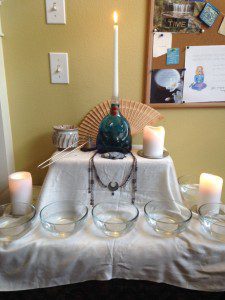
My practice comes out of the blood, sweat, and tears methods of Four Quarters Interfaith Sanctuary, and I am a duly initiated priestess of the Third Degree in Stone Circle Wicca. My practice has also come from the Unitarian
Universalist traditions, and from All Souls Unitarian, Washington, DC, where I was ordained a UU minister.
My practice also emerges from time with the Afro-Cuban Santerían houses and times of worship into which I have been invited. Let me note, and note again, that I am NOT an expert on Santeria. I hold no initiations in the tradition. I am not a scholar of the faith. I write humbly and carefully here, knowing that it is all too easy for me to stumble.
The practice of Santeria—or more properly la Regla de Ocha—is a practice of the body and the spirit at least as much of the mind. Ocha, coming from its Yoruba parent, Ifa, is old, variable, and came to the Americas by way of the horrors of the Middle Passage.
It is a practice of ancestor veneration. It is a practice of worship of the Orisha, the saints/angels/deities of the tradition.
Drumming, dancing, trance possession, singing, various forms of divination, study, work, shared meals, layers of initiation, and animal sacrifice are all integral parts of the tradition’s practices.
There are few houses of Ocha that would initiate a white woman, and for good reason. Nonetheless, I have been invited into Ocha practices and skills and ceremonies—ones I have no “right” to, except for the grace and hospitality of my hosts.
How do We Welcome?
Some questions: One, how does it feel inside you to read the above? To read about Ocha, if you didn’t know about it before? To read, even in passing, of the religious and sacred practice of animal sacrifice?
Furthermore, how can you imagine welcoming an Ocha practitioner into your congregation? Suppose they came to visit, just to see whether there were something for them in your congregation. What would they find? Why would they come back, or not?
How strong is your inclination to write off the question of hospitality in this case as “too extreme”? What could a blood, sweat, and tears religion like Ocha have to do with Unitarian Universalism. Just as I have heard white UUs write off the necessity of welcome and hospitality to Catholic or Pentecostal Latin@ neighbors, I suspect I would hear the same things again. “They have their own traditions,” “Why would they be interested in us?” “What do we have to offer that they don’t already have?”
Do we think so little of our own traditions that we are afraid to invite our neighbors in? Are we so frightened of other people’s practice that we dare not even ask them to come and teach us what we do not know?
We UU’s, we often think we know what needs knowing. That we have gone as far as needs going.
And yet…and yet we are as ignorant as anyone else. We are as slow-going as anyone else. And I think that once we get a grip on those two facts, and bring ourselves humbly to the feet of our neighbors, members, and friends—especially our neighbors of color—then we can move forward toward Beloved Community, toward the world we dream about, toward justice and love.
With love and blessings to you and to your house. – Rev. Catharine


